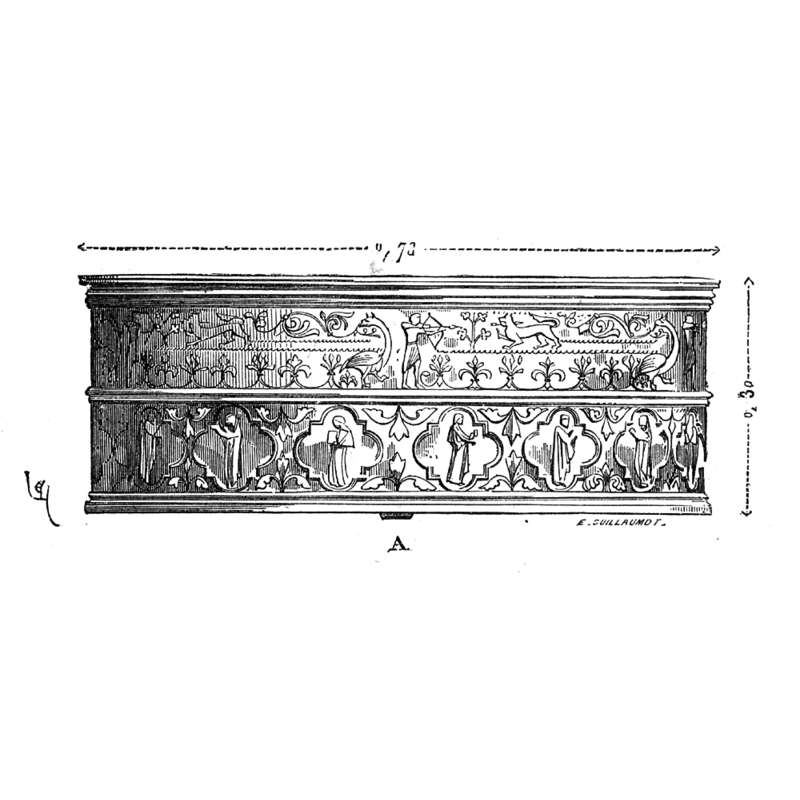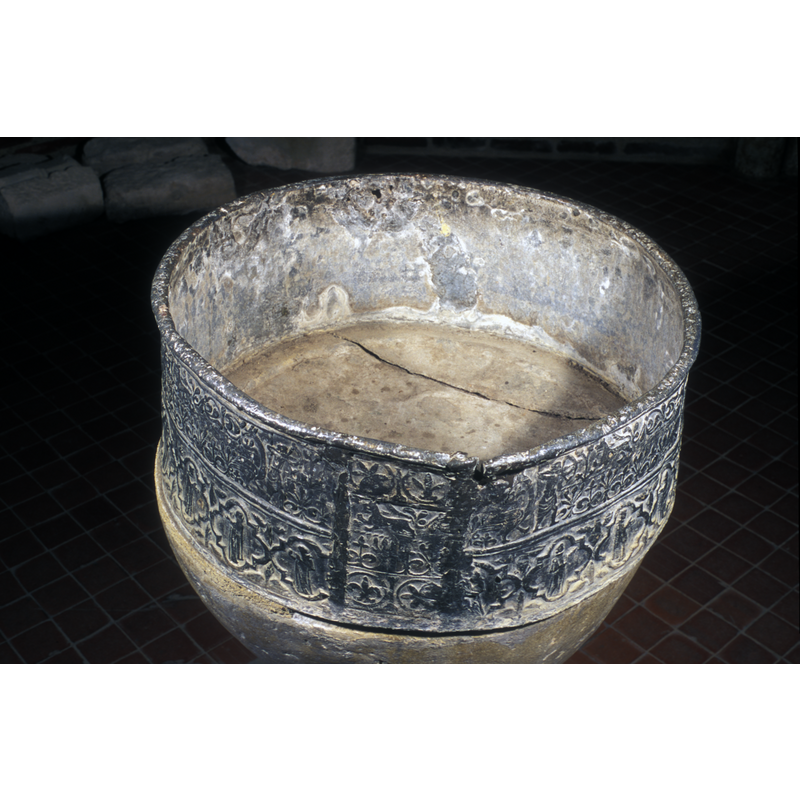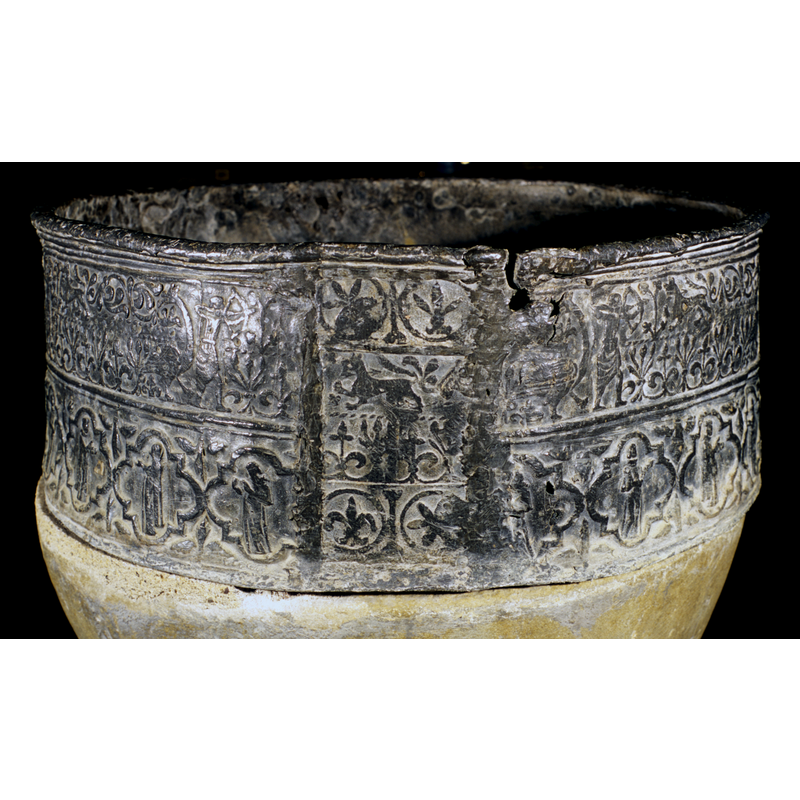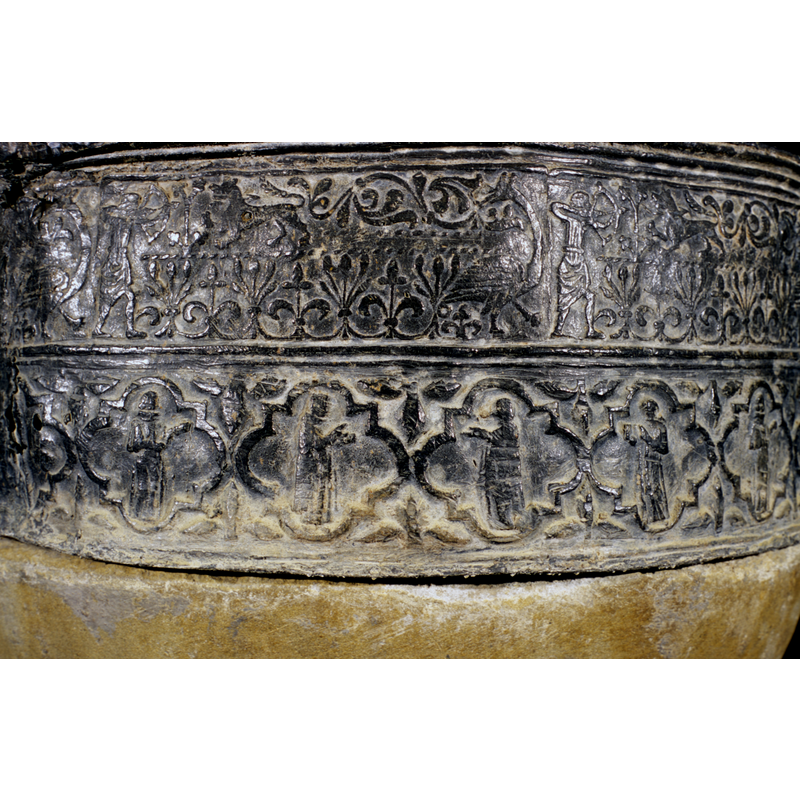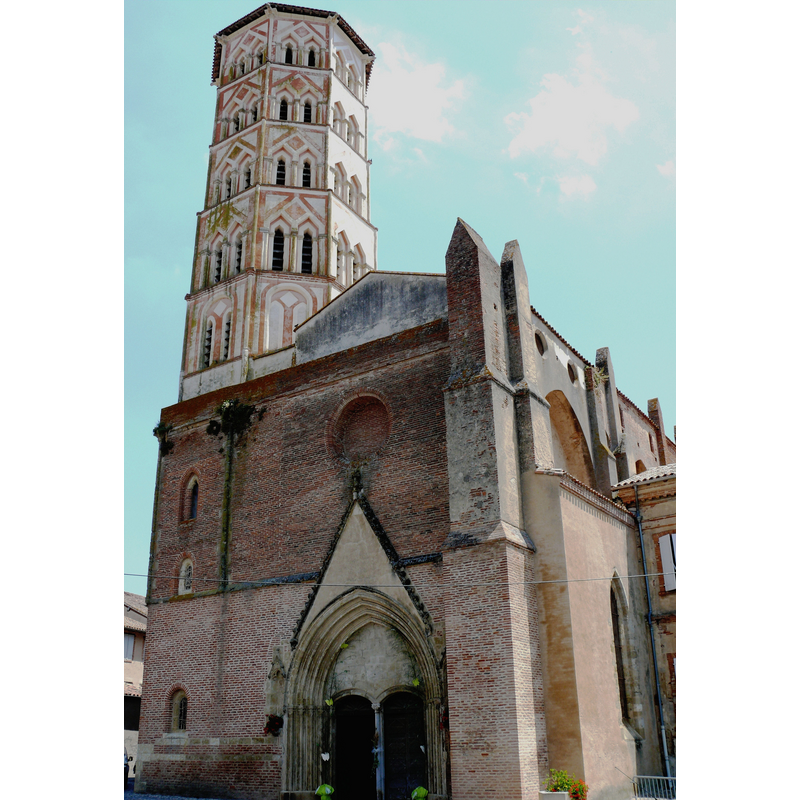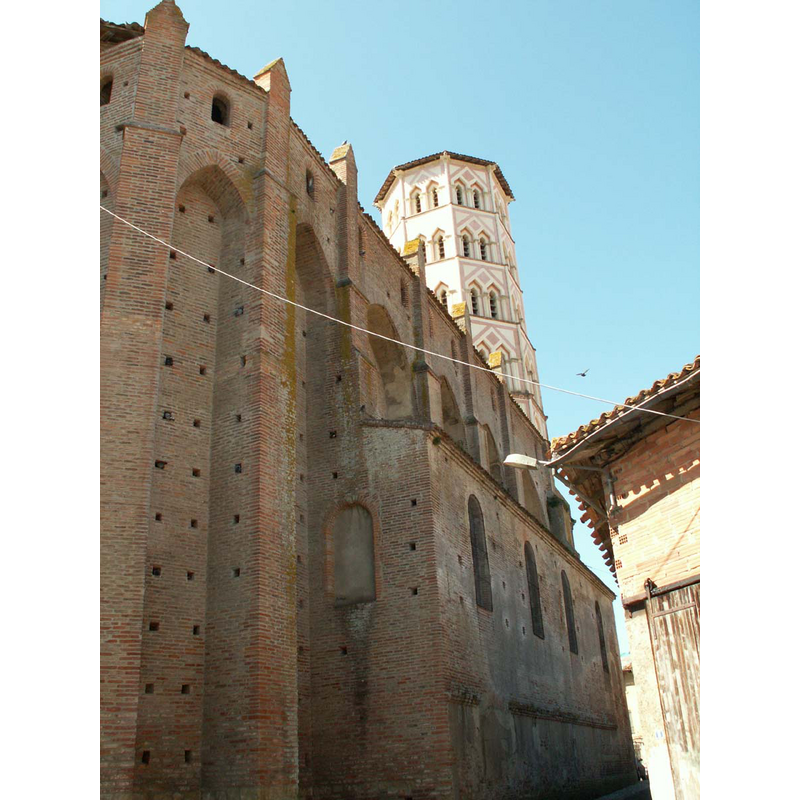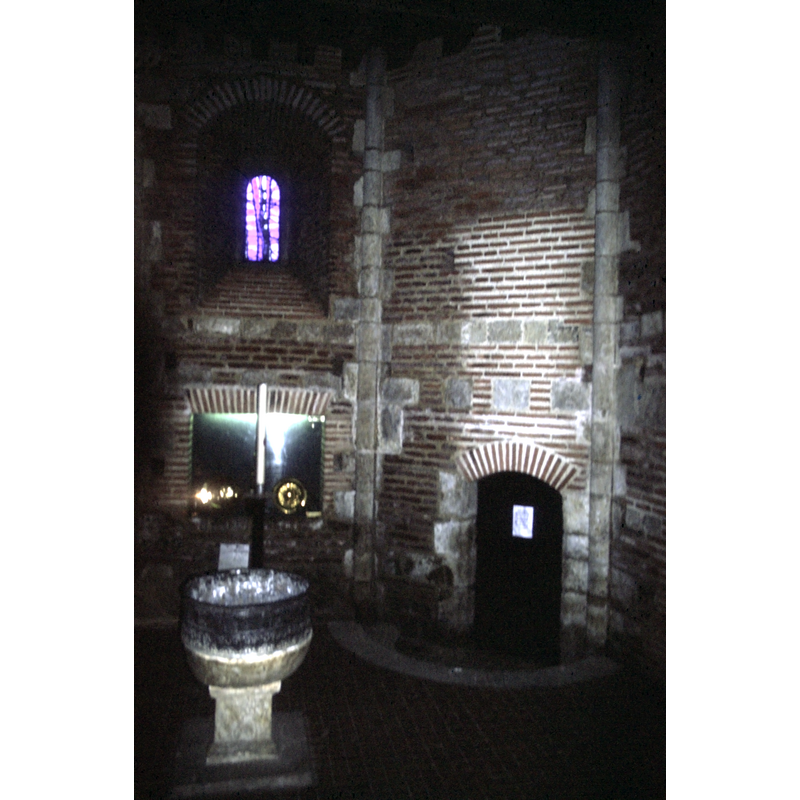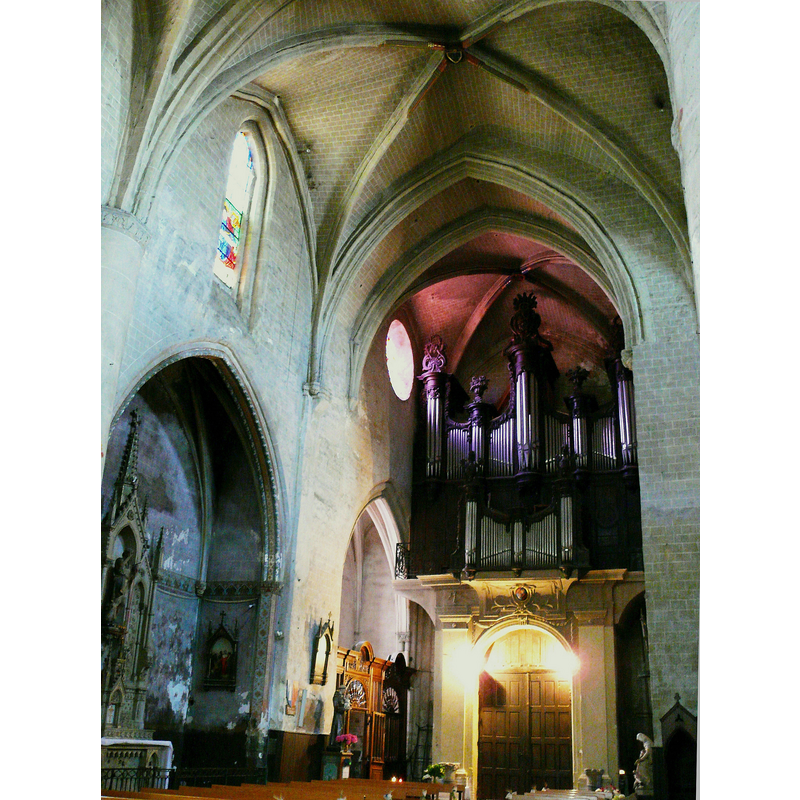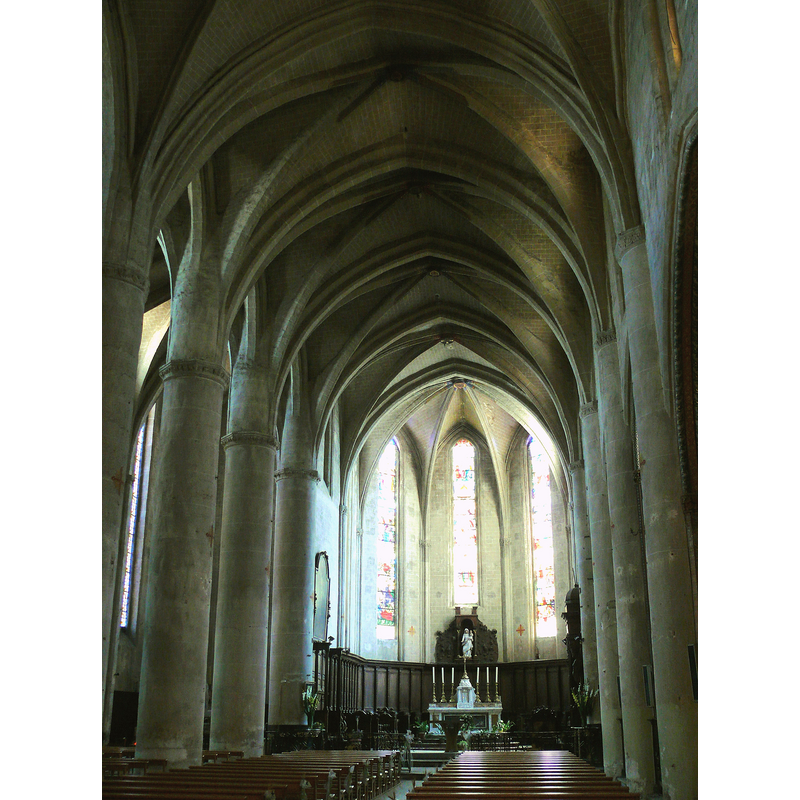Lombez No. 1 / Lumbarium
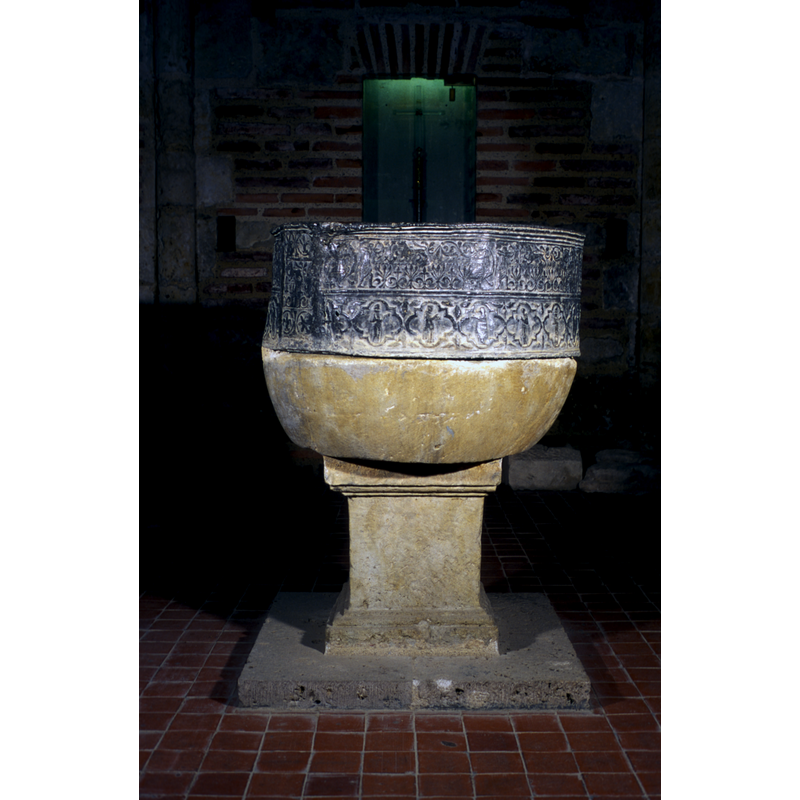
Image copyright © Baptisteria Sacra Index, 2023
CC-BY-NC-ND-4.0
Results: 12 records
view of font
view of basin
view of basin's top
view of basin
hunting scene - archer - lion passant
cleric - monk - 20
animal - fabulous animal or monster - dragon
view of church exterior - southwest end
Copyright Statement: Image copyright © MOSSOT, 2007
Image Source: digital photograph taken 7 July 2007 by MOSSOT [http://commons.wikimedia.org/wiki/File:Lombez_-_Cathédrale_-6.jpg] [accessed 26 August 2013]
Copyright Instructions: CC-BY-SA-3.0
view of church exterior - northeast view
Copyright Statement: Image copyright © Elisabeth Bouynot, 2006
Image Source: digital photograph taken 25 March 2006 by Elisabeth Bouynot [http://commons.wikimedia.org/wiki/File:Cathédrale_Sainte_Marie_de_Lombez.jpg] [accessed 26 August 2013]
Copyright Instructions: CC-BY-SA-3.0
view of font in context
view of church interior - nave - west end
Copyright Statement: Image copyright © MOSSOT, 2007
Image Source: digital photograph taken 7 July 2007 by MOSSOT [http://commons.wikimedia.org/wiki/File:Lombez_-_Cathédrale_-5.jpg] [accessed 26 August 2013]
Copyright Instructions: CC-BY-SA-3.0
view of church interior - nave - looking east
Copyright Statement: Image copyright © MOSSOT, 2007
Image Source: digital photograph taken 7 July 2007 by MOSSOT [http://commons.wikimedia.org/wiki/File:Lombez_-_Cathédrale_-8.jpg] [accessed 26 August 2013]
Copyright Instructions: CC-BY-SA-3.0
INFORMATION
Font ID: 02520LOM
Object Type: Baptismal Font1
Date Visited: 2001-06-06
Font Century and Period/Style: 13th century (late?), Gothic
Workshop/Group/Artisan: lead font
Cognate Fonts: [cf. FontNotes]
Church / Chapel Name: Ancienne cathédrale Sainte-Marie
Font Location in Church: In the centre of the old baptistry, left of the western door, raised on a square pedestal and stone/concrete hemispheric upper base
Church Patron Saint(s): St. Mary the Virgin
Church Notes: church listed in Mérimée [ref.: PA00094844]
Church Address: Place de la Cathédrale, 32220 Lombez, France
Site Location: Gers, Occitanie, France, Europe
Directions to Site: Located off the D626 [aka Blvd des Pyrénées], 55 kms SW of Toulouse (follow the N124 west to l'Isle-Jourdain and, there, the D634 south to Lombez)
Ecclesiastic Region: Archidiocèse de Toulouse [Diocèse de Lombez until 1801]
Font Notes:
Click to view
Corblet (1881-1882) describes this basin as having two registers: the upper shows a hunting scene, while the lower is divided into four sections and houses sixteen figures altogether; Corblet (ibid.) dates the font to the 13th century. A number of French metal fonts are mentioned in Germain Bapst's Les métaux dans l'antiquité et au moyen age : l'étain (Paris, 1884: 137): "Les fonts baptismaux furent quelquefois en plomb. Le musée de Cluny en conserve du treizième siècle où existent de petits décors peu intéressants : la forme n'est pas gracieuse. Nous avons trouvé trace de cuves analogues dans deux églises du Midi, à Bouret [i.e., Bourret] et à Verdun-sur-Garonne, et puis successivement à Beaumont-de-Lomagne, à Lombez, à Aulin, toujours dans la même région." Enlart (1902) dates the fonts at Puycasquier, Lasserre, etc., to the 13th century. Viollet-le-Duc (1875) states that the same pattern has been repeated five times to decorate the first register and that the figures of the lower register, which, according to him, represent religious orders, are a repetition of four basic models. These repetitive patterns, adds Viollet-le-Duc, made the manufacture of such fonts an inexpensive endeavour since "les fondeurs ou potiers d'étain qui les vendaient les composaient avec des modèles conservés en magasin." Duchemin (1890) notes some similarities betwee the fonts at Bourg-Achard, Plomber and Visme, all in France. In Lethaby (1893) after Viollet-le-Duc. Noted in Chastel (1966) as one of several decorated metal fonts made of plates of lead soldered together. The Dictionnaire des églises... (1966- ) describes it as "probablement de facture toulousaine." Unlike most other French lead fonts, some of which are tall and narrow, this one is wide and low [78 x 30 cm as reported in Viollet-le-Duc (ibid.)] On-site notes: the cylindrical lead font is now situated in the centre of the baptistry building of the cathedral, raised on a stone base (a hemispheric upper base that looks like a rounded underbowl and a square pedestal). The basin sides show two registers: the upper one depicts a hunting scene in which a man points his bow and arrow at a lion; a dragon can also be seen on this register; this scene is repeated all around the basin upper side [NB: this upper register is practically repeated in the nearby font at Sabonnères -- cf. Index entry]. The lower register has four monks dressed in habits, either holding books or pointing at books; this sequence is repeated five times, to a total of twenty figures. The Palissy entry for the font at Pébées [ref.: PM32000311] notes: "Ces fonts baptismaux s'apparentent étroitement à ceux, déjà classés, de Lombez. Ils proviennent très certainement du même atelier, sans doute installé à Toulouse." This font is made of several plates of set design repeated around the basin with soldering showing at the edges; it is apparent that some of the plates on this font were made using the same moulds used at Lombez, Pébées, Pycasquier, Sabonnères, Saiguède and others.
COORDINATES
UTM: 31T 331007 4815624
Latitude & Longitude (Decimal): 43.474444, 0.910556
Latitude & Longitude (DMS): 43° 28′ 28″ N, 0° 54′ 38″ E
MEDIUM AND MEASUREMENTS
Material: metal, lead
Number of Pieces: one
Font Shape: cylindrical, mounted
Basin Interior Shape: round
Basin Exterior Shape: round
Drainage System: centre hole in basin
Rim Thickness: 2-2.5 cm
Diameter (inside rim): 72-76 cm / 78 cm**
Diameter (includes rim): 76-81 cm
Basin Depth: 30 cm*
Height of Basin Side: 29 cm* / 30 cm**
Basin Total Height: 29 cm* [53 cm with the upper stone]
Height of Base: 71 cm*
Height of Central Column: 47 cm
Font Height (less Plinth): 100 cm
Font Height (with Plinth): 106 cm
Notes on Measurements: BSI *[NB: the depth of the basin at the centre is larger than the height of the basin sides because the bottom is curved and that curve is hidden by the shape of the stone underbowl. We have included this underbowl volume in the total height of the base] -- **[on the drawing in Viollet-le-Duc, op. cit.]
REFERENCES
- Dictionnaire des églises de France, Belgique, Luxembourg, Suisse, Paris: R. Laffont, 1966-, III A 80-81
- Bapst, Germain, Les métaux dans l'antiquité et au moyen age : l'étain, Paris: G. Masson, 1884, p. 137
- Chastel, André, Histoire générale des Églises de France, Belgique, Luxembourg, Suisse, France: Robert Laffont, 1966, p. 288
- Corblet, Jules, Histoire dogmatique, liturgique et archéologique du sacrement de baptême, Paris: V. Palme, 1881-1882, vol. 2: 126
- Duchemin, Pierre, Histoire de Bourg-Achard, Pont-Audemer: Imprimerie Ve E. Dugas, 1890, p. 353-354
- Enlart, Camille, Manuel d'archéologie française depuis les temps mérovingiens jusqu'à la Renaissance, Paris: Alphonse Picard & fils, 1902, p. 49, p. 770, fn2
- Esquié, J.J., "Note sur une cuve baptismale en plomb", 8e série, t. II, 1880, Mémoires de l'Académie des sciences, inscriptions et belles lettres, 1880, pp. 1-11 [-41?]; p. 7n
- Lasteyrie du Saillant, Robert Charles, conte de, Architecture réligieuse en France à l'époque gothique (éd. posthume par Marcel Aubert)[2 vols.], Paris: A. Picard, 1926-1927, vol. 2: 513-514
- Lethaby, William Richard, Leadwork, old and ornamental, and for the most part English [...] with illustrations, London; New York: Macmillan & co., 1893, p. 63
- Viollet-le-Duc, Eugène-Emmanuel, Dictionnaire raisonné de l'architecture française du XIe au XVIe siècle, Paris: Morel & Cie, 1854-1868, t. 5: 541-542
